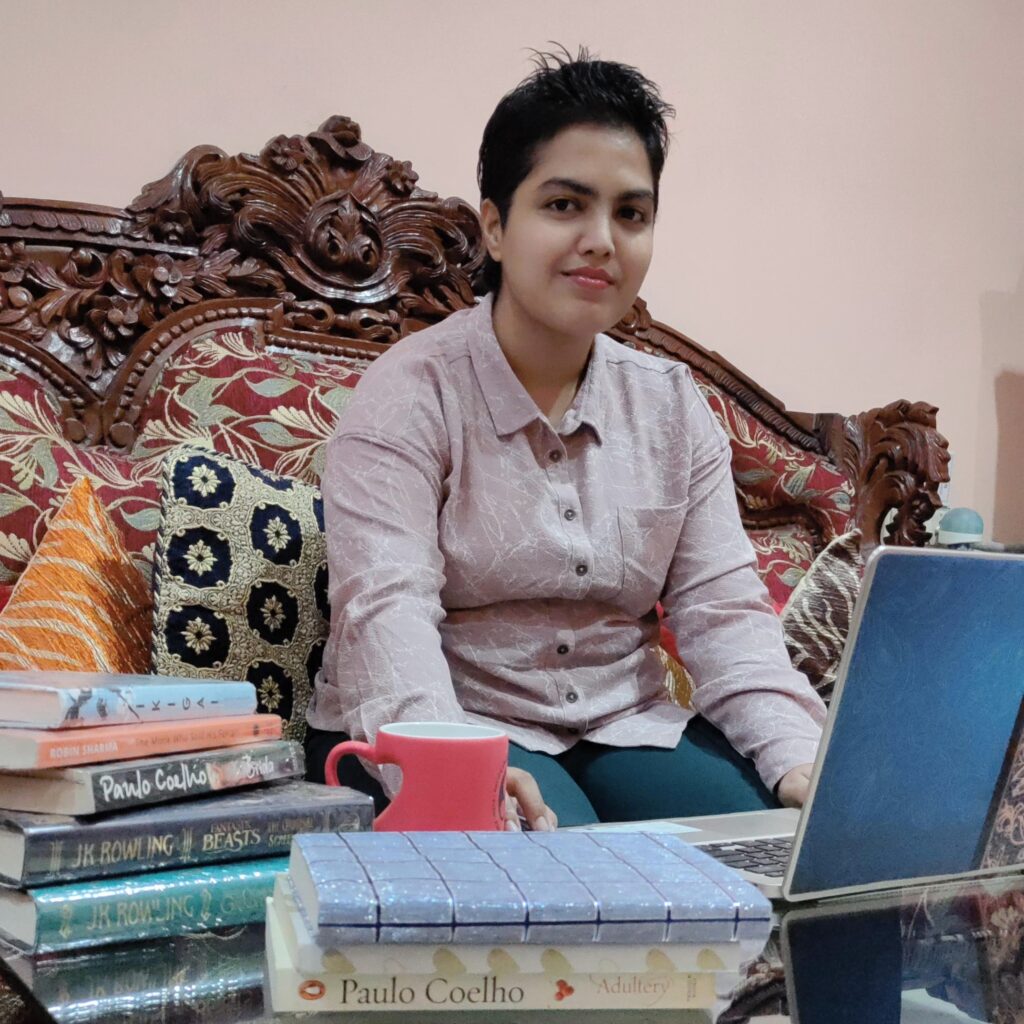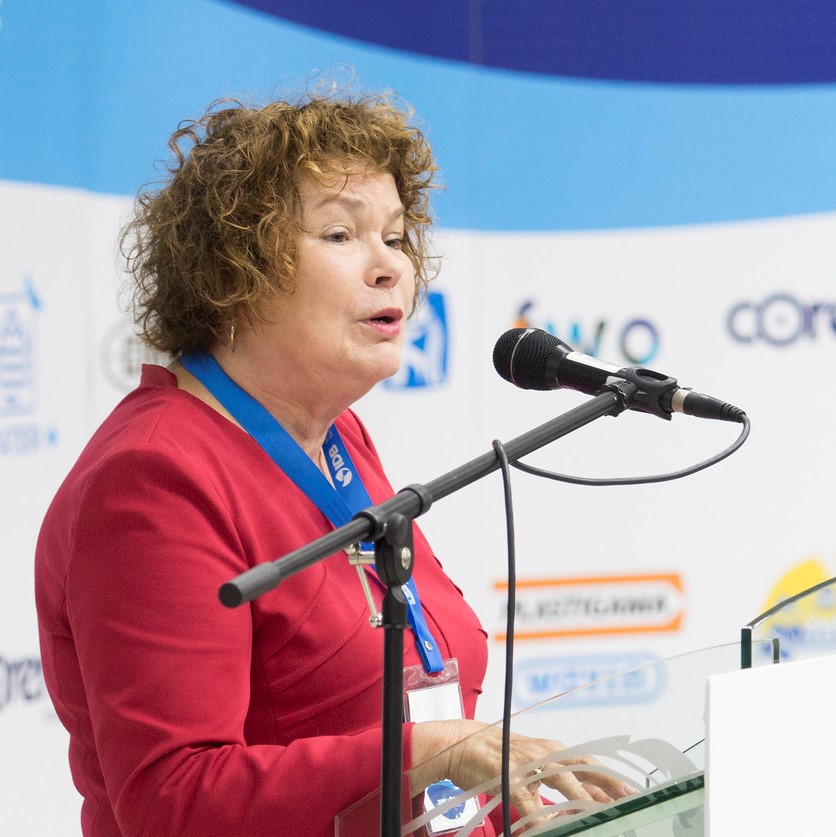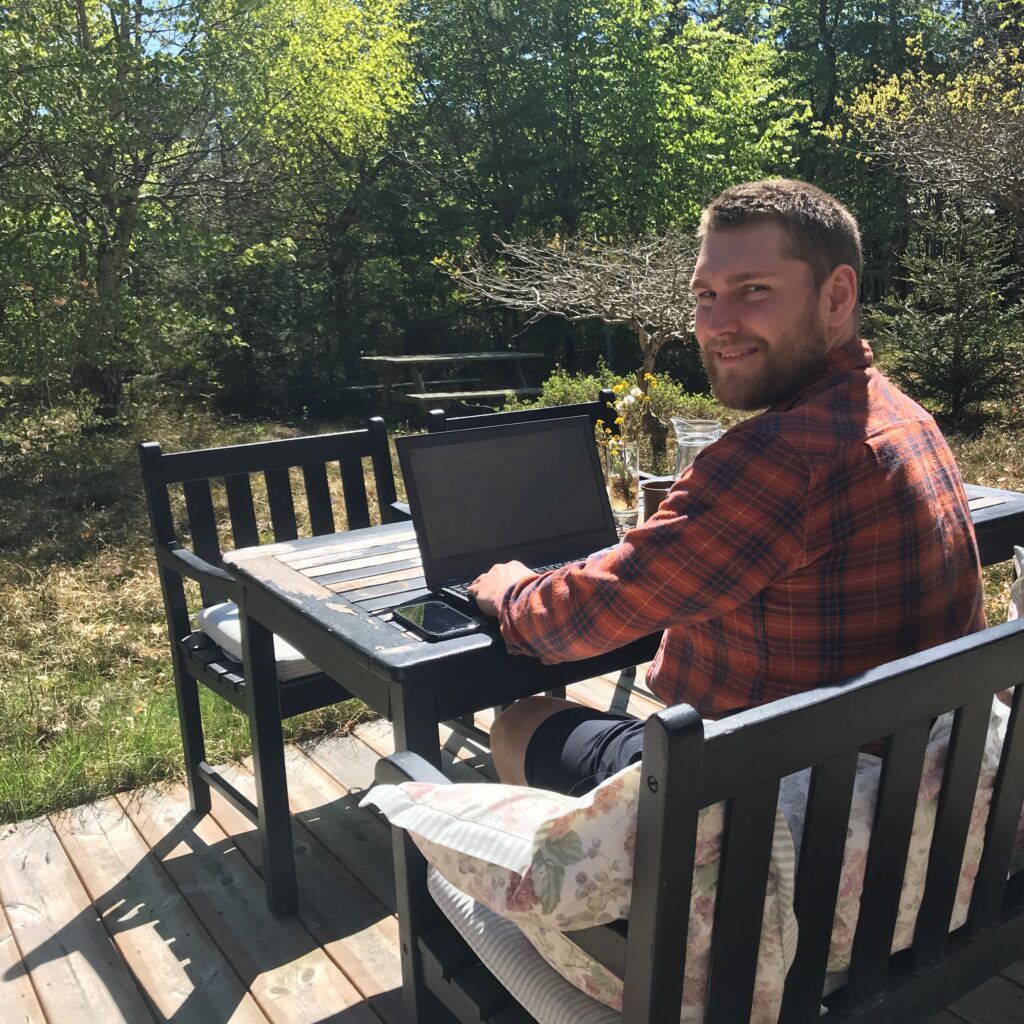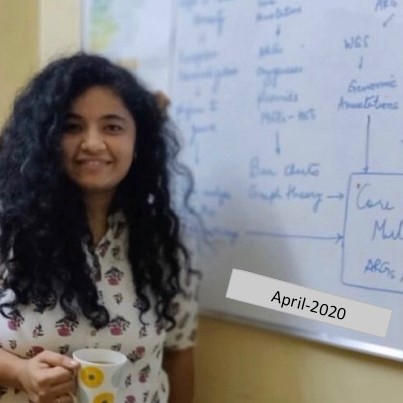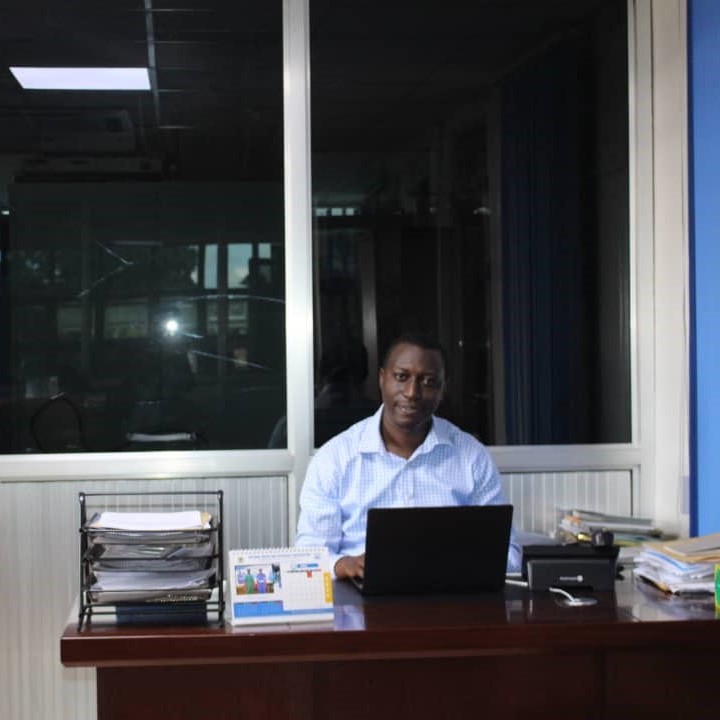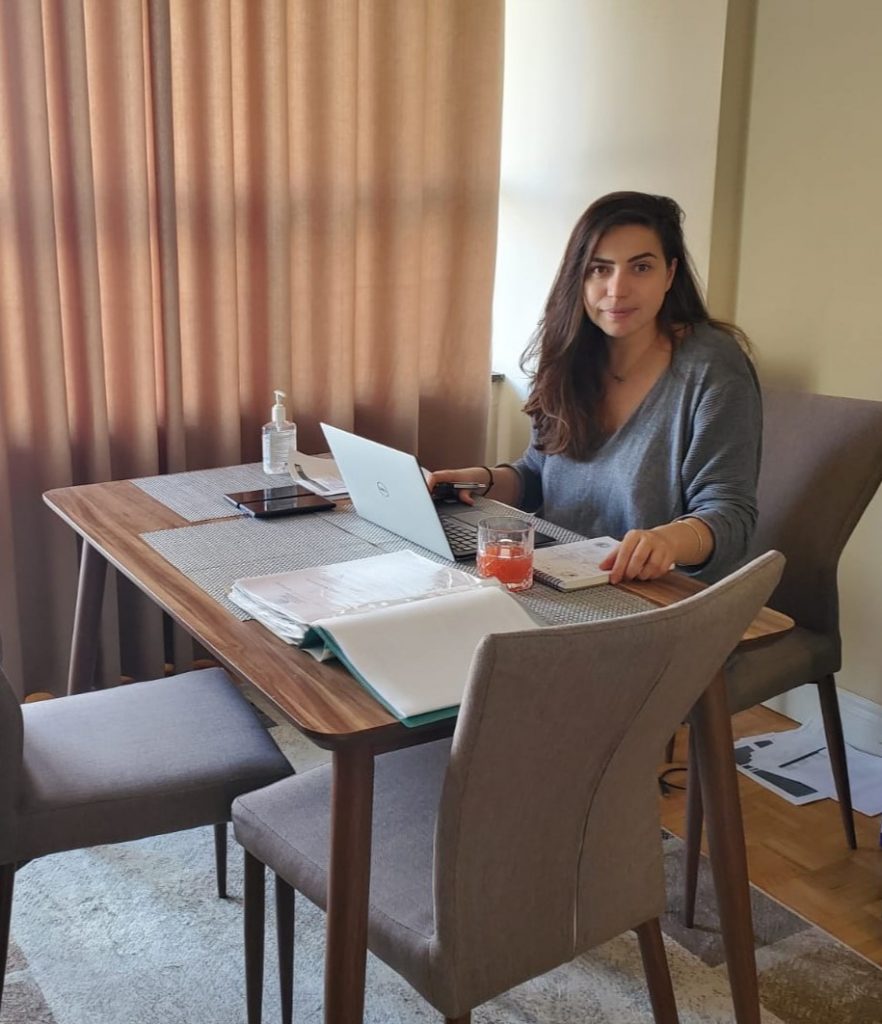Dealing with COVID-19 times | a blog series from IWA Members
This is a blog article series from IWA Members who write about their personal and professional experiences and the new situations they are facing under and with the COVID-19 crisis.
We invite IWA Members to publish their experiences from these challenging times on IWA Connect “Water News Channel” or send their contribution for publishing to ulrike.kelm@iwahq.org.
To read the articles, please login to your IWA Connect account or, in case you are not an IWA Member, please register. IWA Connect is the IWA online platform to connect directly with water professionals from the global IWA network, to get the latest updates from the sector and to join different specific working groups.
____________________________________________________________________________
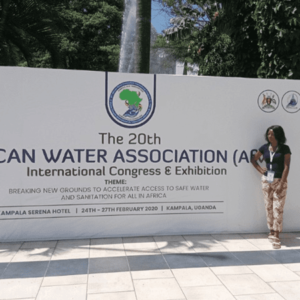 COVID-19 and Water Scarcity: A problem amid the coronavirus pandemic
COVID-19 and Water Scarcity: A problem amid the coronavirus pandemic
One of the most emphasised WHO guidelines on prevention of the corona virus is to regularly wash hands under running water for 20 seconds but, what happens if a community does not have access to safe affordable water? The COVID-19 pandemic has revealed the importance of water in any pandemic and how water is essential in the fight against diseases whether water borne or not.
Read blog article from Tariro Marekwa, Zimbabwe
 The Regulation day by day during the pandemic
The Regulation day by day during the pandemic
For two months now we have been living with a new reality brought by the pandemic and, due to that, we all had to adapt our work routines and the way we interact with our coworkers, friends, and loved ones. Since March I have been working from home. My office is, currently, my dining room and, the only people I have face-to-face contact with are my parents, my sister, and my goddaughter, who lives nearby.
While being grateful for the interaction with my family, and I would like to highlight my thanks to ADASA (Regulatory Agency for Water, Energy and Sanitation of the Federal District), where I act as the Advisor to the Board of Directors, for all the support they have been giving us, employees, providing all the necessary tools to develop the regulation activities.
Read blog article from Vanessa Fernanda Schmitt, Brazil
Health, Climate and Economy (HEC) nexus of COVID-19 outbreak
The novel coronavirus or SARS-CoV-2 caused pandemic has affected the whole world since its spread in December 2019. With the advent of COVID-19, globally a wide range of reports have focused on its climate benefits viz., improved air quality, cleaner and pollution-free streets, animals roaming freely and cleaner creeks. There seems to be quite a queue of these positive aspects post the halt of human activities and practicing social distancing. But flipping the other side of the coin this universal health crisis hasn’t been entirely better for the environment.
Read blog article from Payal Mazumder, India
 Nature is like a spider web, everything is connected to everything.
Nature is like a spider web, everything is connected to everything.
We all come under the same organic pool. If something gets somewhere harmed, then it gets affected to everyone. This is how the nature works, but in recent times we have experienced this. Staying away from the institute where we, research scholars, pursue our passion in search of new and interesting things, and here we are at our home spending time in thinking what next!
Read blog article from Abhishek Tippa, India
71 Days
It is the 71st day since we were confined and preventive measures were taken by the Kenyan government to combat the Coronavirus. At the time of this happening, I was very immersed in academic activities.
For myself, March was supposed to be the last month on campus; so it was an intense period where I was studying to prepare for my exams, I was collecting data for my academic project, thinking about my options for studying maters without neglecting to spend time with my friends and colleagues.
Read blog article from Chataigne Djuma, Democratic Republic of Congo
IWA Pandemic Blog
I’ve experienced the coronavirus pandemic as a resident of the San Francisco Bay Area, which has been a hotspot in terms of cases in the US, although not nearly as hard-hit as New York City. On March 9th, I talked with adorable second-grade girls and boys in my grandson’s elementary school about water and wastewater, to help them prepare for a field trip to a local wastewater treatment plant. But that field trip was canceled. One day and one week later, the Bay Area was subject to “shelter in place” orders and school buildings were closed.
Read blog article from Cheryl Davis, USA
It has been more than two months since the Danish Prime Minister closed down the country …
… and urged private companies to send home employees, who were able to carry out their jobs from home. I am one of the lucky ones, who have been able to carry out my work as a planner with the utility of Greater Copenhagen from home. As a utility, we have a great responsibility to keep the wheels turning and to keep progress on the projects were our partners and suppliers are depending on us for their life-sustaining revenue. That has been my task since I was sent home. I have worked with our partners and internally on the projects, which I am responsible for, to keep progress.
Read blog article from Thor Danielsen, Denmark
2020……. a year just about survival!
My life has often hit the pause button; as I grew up in a city, which has experienced a major earthquake, floods, and plague pandemic. The inherent resilience has helped me manage myself in the current pandemic situation that we are facing today. I have missed my morning walks the most in these lockdown days. However, communicating daily with my family and friends has helped me, I feel grateful that I exist in the era of social media and technology. I spent my weekends watching documentaries like Second World War, Chernobyl, and The Great Hack.
Read blog article from Niti Jadeja, India
Lockdown lesson #1: Self-control comes first
There is something about realizing the many things you cannot control — such as uncertainty or covid-19’s fatality rate — that makes you focus intensely on the things that you can. The lockdown has forced me to focus on things that I can control: adopting an indoor exercise regimen, scheduling check-ins with friends and family, and becoming more aware of my mental and emotional state. Coming to terms with what I can and cannot control, I am then able to extend my help and support where I could.
Read blog article from Yang Villa, The Philippines
How are you handling the lockdown (personally) what are you doing to stay sane, how is work affected?
Personally, it has been a very busy time for me. Since the lockdown, we are working 24/7 to ensure that customers have water to fight the spread of COV19. The staff was reduced to almost half of the utility and almost all my staff are home. I have to drive in every day and ensure that work goes on. I have also been engaged in the preparation of communication kits for our top management. Like never before, we have to communicate on social media, radio, tv, newspapers, flyers, etc. the supply situation and interruptions in the system if any. Sometimes we leave media houses late at night.
Read blog article from Fisher John Sekabira, Uganda
It is day 50 of self-quarantine and it’s beautiful outside!
At the start of the pandemic I was still in my home-country Albania, a country closely affected by the pandemic due to the proximity to Italy. Thankfully I was still allowed to travel to return home to Canada. However, in Canada my mandatory self-isolation started as they had invoked the Quarantine Act to impose mandatory self-isolation for travelers entering the country.
Read blog article from Arlinda Ibrahimllari, Canada
I had an ambitious plan for 2020 and it all seemed to be going well until the issues of Corona Virus set in. A few weeks to the lockdown in Ghana, I had returned from the Africa Water Association Congress in Kampala, and to me that was a narrow escape from a mandatory quarantine. On the eve of the lockdown in three major cities in Ghana, I had to hurriedly leave the capital city Accra and report to my work station in the Volta region because my short work leave had ended. Then the lockdown finally came, though it was in only three major cities, its impact was felt across the whole country. In my area, food prices doubled up and some items became very scarce, and there was no way to see my family and friends who were all on lockdown. That was frustrating. (…)
Read blog article from Jacob Amengor, Ghana
